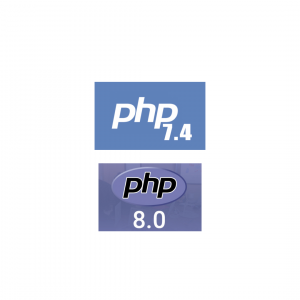Websites on PHP 7.4 and PHP 8.0 are inaccessible on CloudLinux? We can help.
At Bobcares, we offer solutions for every query, big and small, as a part of our Server Management Service.
Let’s take a look at how our Support Team recently helped out a customer when websites on PHP 7.4 and PHP 8.0 are inaccessible on CloudLinux.
Why are websites on PHP 7.4 and PHP 8.0 inaccessible on CloudLinux?
According to our Support Team, Websites on PHP 7.4 and PHP 8.0 that are not accessible on CloudLinux often exhibit these symptoms:
- 504 Gateway Time-out error.
- 100% of CPU consumption by PHP 7.4 and PHP 8.0 master processes.
- THe /var/log/plesk-php74-fpm/error.log file:= consists of the following error:
WARNING: [pool example.com] child 1335278 said into stderr: "ERROR: [pool example.com] CageFS jail error Failed to initialize lve library instance: No such file or directory: No such file or directory (2)" WARNING: [pool example.com] child 1335278 said into stderr: "ERROR: [pool example.com] child failed to initialize" ERROR: [pool example.com] Error on LVE enter: LVE(10022)
WARNING: [pool example.com] child 3682835 said into stderr: "ERROR: [pool example.com] CageFS jail error Failed to initialize lve library instance: Operation not permitted: Operation not permitted (1)", pipe is closed WARNING: [pool example.com] child 3682835 said into stderr: "ERROR: [pool example.com] child failed to initialize", pipe is closed
This specific error is due to a product issue:
#PPPM-13184 "In Plesk on CloudLinux with enabled CageFS and the latest PHP updates installed, PHP 7.4. and 8.0 no longer consume all the CPU."

However, the PHP Updates 31 August 2021 (Linux) contains a fix for the error. If you are looking for solutions to the error, our Support Techs have your back.
Solution for CloudLinux 7
For PHP 8.0
- First, we will log in to the server through SSH.
- Then, we have to run the following command in order to open the PHP 7.4 configuration file:
# systemctl edit plesk-php80-fpm.service
- Next, we will add these lines to the file:
[Service] PrivateDevices=false
- After that, we will save the changes and run the following command for the changes to take effect:
# systemctl restart plesk-php80-fpm.service
For PHP 7.4
- First, we will log in to the server through SSH.
- Then, we have to run the following command in order to open the PHP 8.0 configuration file:
# systemctl edit plesk-php74-fpm.service
- Next, we will add these lines to the file:
[Service] PrivateDevices=false
- After that, we will save the changes and run the following command for the changes to take effect:
# systemctl restart plesk-php74-fpm.service
Solution for CloudLinux 8
For PHP 8.0
- First, we will log in to the server through SSH.
- Then, we have to run the following command in order to open the PHP 8.0 configuration file:
# systemctl edit plesk-php80-fpm.service
- Next, we will add these lines to the file:
[Service] PrivateDevices=false RestrictNamespaces=false
- After that, we will save the changes and run the following command for the changes to take effect:
# ssystemctl restart plesk-php80-fpm.service
For PHP 7.4
- First, we will log in to the server through SSH.
- Then, we have to run the following command in order to open the PHP 7.4 configuration file:
# systemctl edit plesk-php74-fpm.service
- Next, we will add these lines to the file:
[Service] PrivateDevices=false RestrictNamespaces=false
- After that, we will save the changes and run the following command for the changes to take affect:
# systemctl restart plesk-php74-fpm.service
[Looking for a solution to another query? We have your back.]
Conclusion
In short, the skilled Support Engineers at Bobcares demonstrated what to do when websites on PHP 7.4 and PHP 8.0 are inaccessible on CloudLinux.
PREVENT YOUR SERVER FROM CRASHING!
Never again lose customers to poor server speed! Let us help you.
Our server experts will monitor & maintain your server 24/7 so that it remains lightning fast and secure.







0 Comments